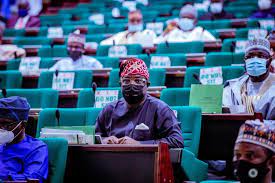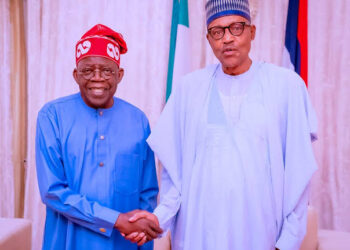As declared by the President of the Senate, Ahmad Lawan, last week at the State House, will the Petroleum Industry Bill (PIB), be considered and passed at both chambers of the National Assembly this week? TAIYE ODEWALE examines.
Purpose of the bill
The Petroleum Industry Bill ( PIB), which has been a recurring decimal as far as legislative proposals are concerned since the 5th National Assembly, basically seeks for liberalisation of the petroleum sector, in paving way for investors- local and foreign- to drive it along with government on a competitive template.
Failed attempts in the past
As necessary as the legislation is, several attempts made by different sessions of the National Assembly (NASS), to get it passed and signed into law, from 2003 till date, have not been successful due to some salient aspects of the proposal like percentage to be given to cost communities from profits made or operational costs by affected oil companies.
Specifically, four different attempts have been made on the bill without success by either passed by the National Assembly but refused assents by the presidency as was the case in the 7th and 8th National Assembly or failed passage at NASS as an executive bill as was the case during the 6th National Assembly.
Determination to break the jinx
After much expectations by the federal lawmakers to be on the same page with the executive arm of government on the need to come up with Petroleum Industry Bill after many years of failures in getting previous ones passed or receive presidential assent after passage, President Muhammadu Buhari in a letter dated September 2, 2020, forwarded a draft of the bill to both chambers of the National Assembly.
The President in the letter said: “Pursuant to section 58 of Constitution of the Federal Republic of Nigeria 1999 as amended, I formally request the consideration and passage into law by the Senate, the Petroleum Industry Bill 2020.
“In particular, the Senate may wish to note that this bill combines in a single tone, aspects of significant reforms to the laws governing the Nigerian Petroleum Industry, that were previously set out in two distinct draft legislations namely the Petroleum Industry Bill 2020 and the Petroleum Industry Fiscal Bill, 2020. While I trust that the Senate will in their usual expeditious manner favourably consider the passage of this bill into law, please accept Mr Senate President, the assurances of my highest consideration.”
Expeditiously, both the Senate and the House of Representatives, ensured consideration of the bill to second reading stage before embarking on Christmas and New Year break on December 21 last year.
In the spirit of getting the bill passed this year, relevant committees from both chambers organised public hearings on series of proposals made into it four months ago where the contentious issue of percentage for host communities reared its ugly head again.
While the executive in the draft bill, proposes 2.5% percentage from operational cost of the oil firm for the host communities, leaders of the various host communities led by their National President, High Chief Benjamin Style Tamaranebi, argued and insisted on 10% equity share.
The disagreement on the percentage share for the host communities got heated up during the public Hearings at different interview sessions the Minister of State for Petroleum, Timipre Sylva and President of the host communities had with journalists.
While the president of the host communities insisted on 10% equity remittance from affected oil companies, the Minister said the 2.5% operational cost from oil companies proposed in the bill as host community share is the best.
His words: “I speak advisably as a member of the Host Community myself. If you have to look at it properly, you will see that 10 per cent of profit is different from 10 per cent of the operation cost from the various oil firms.
“Before now, you had the provision of 10 per cent of profit and profit means that if I don’t declare it, you don’t have anything. I can decide to say 100 per cent of profit and not declare any profit, so you don’t get anything.
“But in this case, it’s 2.5 per cent of the OPEX. So, at the end of the year, you look at your operating cost and take 2.5 per cent of that cost to the budget of the next year.
“As far as we are concerned, we have made a very fair proposal. Fair to the host communities, to the country and to the oil companies”
But the president of the host communities countered, saying, “for the PIB to see the light of the day in a way that it will guarantee safety for the operational companies in all the affected communities and give the communities themselves, equity participation and required sense of belonging, the 10% equity share must be honoured.
“The Minister of State for Petroleum should take his 2.5% operational cost (OPEX) to the marines as people of the affected communities are not morons or beggars begging for peanuts or grants from anybody”.
Driven by determination to succeed this time around, the Senator Sabo Mohammed Nakudu and Hon Mohammed Tahir Monguno led committees forged ahead with collation of views for the proposed legislation by taking the public hearings to the host communities in Niger Delta between March and April this year.
Apparently, with harmonised reports at hand, the President of the Senate, Ahmad Lawan, in his remarks at the State House last week after a brief meeting with President Muhammadu Buhari, said the reports would be laid at both chambers by the affected committees on Tuesday this week for final consideration and passage the following day.
But despite the strong indication that the PIB jinx will be broken by this 9th National Assembly, the question is: will the bill and by extension, Act of Parliament that it would eventuality become after assent by the President, bring about the expected transformation of the petroleum sector?
Time will definitely tell.



